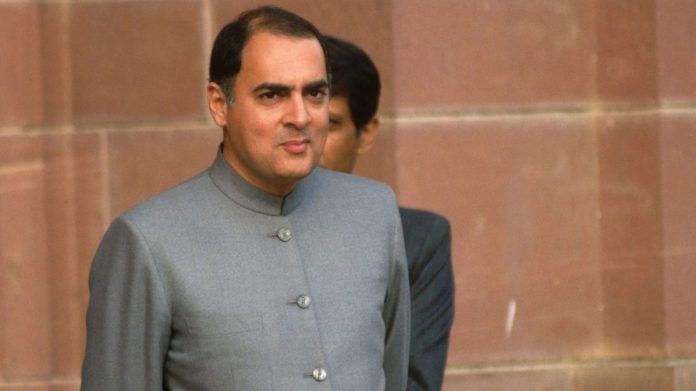A former pilot and student of Trinity College, Cambridge and Imperial College, London, Rajeev Gandhi was the first youngest Prime Minister in Indian history. The eldest son of Indira and Firoz Gandhi was the third generation in the politically affluent Nehru-Gandhi dynasty that ruled India.
He is one of the prime ministers who were more inclined towards scientific growth. Unlike his mother, he was against traditional socialism and decided to improve bilateral ties with the USA, expanding on economic and scientific cooperation with the western nation. In his revived foreign policy, the emphasis on economic liberalization and information technology moved India closer to the west.
ALSO READ: Women Get Equal Inheritance Rights to Ancestral Property from Supreme Court
Some of the remarkable achievements of Rajiv Gandhi were:
Anti-Defection Laws (52nd Amendment)
Rajeev Gandhi’s first act as prime minister was passing the anti-defection law. As a measure of curbing corruption and bribery of ministers by switching parties so they could gain the majority. However, the first time it was passed by Indira Gandhi’s government in May 1973, soon it was overtaken by the emergency and eventually buried.
National Policy for Education (NPE)
National policy of education is a policy by governemnt of india launched in order to promote education amongst people. it is focused on aimed at providing education from elementary levels to university and college levels, both in rural and urban India. The First NPE was first introduced by Indira Gandhi’s government in 1968, in which ‘radical restructuring’ of the education system was called for and for the purpose of achiveing national integration.
Under rajeev gandhi’s NPE policy special emphasis would be given to the removal of disparities and equalisation of educational opportunities, especially for women, Scheduled Castes (SCs) and Scheduled Tribes (STs) communities.
ALSO READ: Deep Scepticism Prevails after the Announcement of Russian Covid-19 Vaccine
Information Technology & Telecommunications in India
Rajeev Gandhi is credited for starting various services in this field such as C-Dot which is a government owned telecommunications technology development centre, in 1984. It was initially mandated with designing and developing digital exchanges. Eventually, C-DOT expanded to develop intelligent computer software applications.
Moreover, his governemnt launched MTNL, which is the telephone services of Delhi and Mumbai and VSNL which is to cater to overseas communication services.
Improving ties with USA
Unlike his mother, Rajeev Gandhi was more skewed towards improving military ties with the United States of America. He showed that he could move India’s foreign policy in new and innovative directions.
According to a declassified CIA document, Gandhi’s visits to the Soviet Union, Middle East, France, and USA in May 1985 highlighted signals about Rajiv Gandhi’s ‘evolving personal and diplomatic style’.
You can connect with Ground Report on Facebook, Twitter and Whatsapp, and mail us at GReport2018@gmail.com to send us your suggestions and writeups









